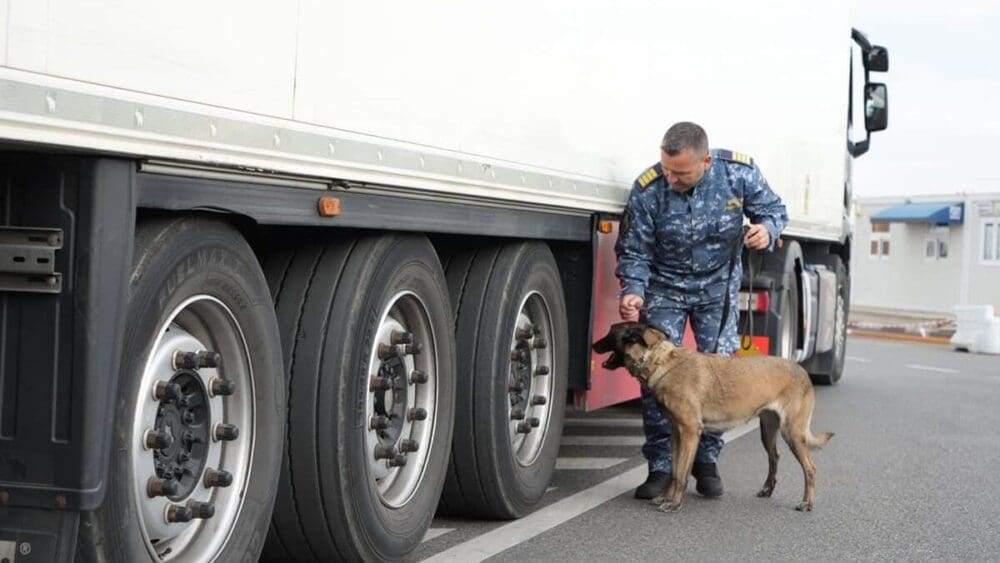
A Romanian Border Force official
Romanian Border Police / Facebook
Romanian authorities, together with Bulgarian police and the EU Agency for Law Enforcement Cooperation (Europol), have arrested the leaders of yet another migrant trafficking network operating in Romania which smuggled mainly Syrian and Iraqi nationals into the EU for hefty fees.
According to Europol’s press release, dated July 30th, the authorities raided nine locations in four cities across Romania, seizing documents, equipment, and cash, as well as arresting eight people of Romanian and Syrian descent. They also found 32 Syrian and Iraqi migrants in one of the ring’s safehouses, waiting to cross the Schengen borders into Hungary.
The leader of the migrant trafficking network is said to have been a Syrian national living in Romania for over three years but maintaining strong ties with larger organizations based in Istanbul, Turkey, for whom he acted as a “regional coordinator” for the final leg of the East Balkan smuggling route.
Operating out of his Bucharest headquarters, he recruited Romanians to work as “private taxi drivers” to transport the migrants from the Bulgarian borders to one of his hubs in western Romania, from where they’d cross the Schengen area’s external border in lorries, concealed between the merchandises.
Between February and May alone, this group was responsible for at least five smuggling incidents with a total of 70 migrants crossing illegally. Europol said the individuals paid between €5,000 and €10,000 for the full smuggling services to reach their final destination, which is usually Germany.
The sting operation was initiated and led by Romanian Police and the Romanian Border Police, aided by Europol and a Bulgarian state agency for combatting organized crime. The preliminary investigation was also supported by authorities from Austria, Germany, and Hungary.
This is not the first, nor the largest anti-smuggling operation of this kind carried out in Romania in recent months. In early June, Romanian authorities conducted 67 searches in seven counties in a single day, dismantling another migrant trafficking network that was reportedly led by a former employee of the Romanian Interior Ministry. The former official, together with current ministry staff, had illegally sold nearly 1,200 work permits to mostly Pakistani and Bangladeshi migrants, for €1,000-6,000 apiece.
“This action demonstrates that we do not tolerate any case of corruption, no matter where we identify it,” Interior Minister Cătălin Predoiu said afterwards. The minister highlighted that Bucharest’s relentless efforts to weed out these networks and strengthen its border protection capabilities have already resulted in a 73% drop in illegal crossings compared to last year, and that Romania’s Schengen accession bid should be viewed accordingly.
The country has been waiting to join the EU’s free movement area since it joined the bloc in 2007. Its accession is now blocked only by Austria mainly due to illegal migration concerns. As a largely just symbolic (and “humiliating”) first step, Romania and Bulgaria were allowed to join the so-called “air Schengen” earlier this year, but land-based border crossings—making up nearly 90% of all travel abroad—remain subject to border checks.
Nonetheless, Bucharest hopes the last veto will fall by the end of the year and Romania could finally join Schengen fully in January 2025. Bulgaria’s Schengen accession might take somewhat longer, as its bid is blocked by both Austria and the Netherlands.
